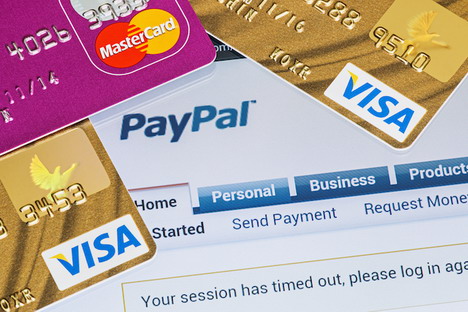15 Most Common PayPal Scams You Must Avoid
PayPal is one of the most important payment systems in the world that is used by millions of people. Being a huge fan of the platform myself, I have used it for many years and encountered a number of scams during this time. Apparently, scammers try to take advantage of the popularity of the platform from the very first year it was introduced, so there are many scams.
No one wants to lose money from PayPal account. Getting robbed online is one of worst things because the account becomes exposed and should not be used again until everything is cleared. It is clear that you should have a strong password on your account to protect from being accessed by someone else but you have to apply some extra effort to make sure that everything is secured.
Of course, PayPal offers security services when it comes to the account but do not underestimate the skills of scammers. You would not believe how many times the money was stolen from PayPal users who were asked by scammers to provide the login details voluntarily. In this case, the company cannot do anything to help because the data was given away by users themselves.
Well, enough foreplay. Here is the list of fifteen most common PayPal scams that you need to learn to avoid to keep your account and your funds safe.
1. Fake Emails
Fake email messages sent to PayPal users are very common and usually describe that you have received a payment, sent a payment, or that you need to confirm some information or update the account. In some cases, the scammers even send emails claiming that you have been subjected to a refund, which can easily distract your defensive mechanism from checking the sender of the message.
Recognizing fake emails is reasonably easy: they can contain attachments (genuine PayPal messages never have attachments), great you without you name (PayPal knows your name and always uses it), and are sent from a wrong address such as service@paypall.com, service@paypal.net (only service@paypal.com is the real address).
2. Fake websites
Yes, the scammers go an extra mile to get some cash from your account and even design websites to trick you. Most of them are linked to fake websites, so you would think that the email is genuine. These websites generally look exactly like the real deal but if you try to log in, it will steal your data forever.
To avoid being scammed here, you need to look for one thing: browser verification. First and foremost, make sure you visited an authentic www.paypal.com site and then look if the website verified the authenticity by showing website information to the address bar. If you find PayPal, Inc. (US) there, you are good to go.
3. Advance fee fraud
In some cases, the scammers send offers claiming that you won a huge amount of money and ask for advance payments to receive them. Generally, they explain these advance payments as the need to pay for legal documents and taxes, so you “receive” your money quickly. Yes, right. No one intends to send you anything; they just try to persuade you to send them some cash.
4. Prize winner scam
This scam is actually similar to the previous one. You receive an email from the scammers saying that you have won a prize and need to claim it. Once again, they need you to send some money to ensure that the prize is transferred to you quickly and legally, and we know where this money will go: right in the pocket of scammers.
5. Investment scam
This is where PayPal scams become even more sophisticated. The users receive emails from scammers saying that they could benefit from great investment deals, which will pay big bucks in a short term. Often, these emails have clear encouragement phrases, such as “Act Now!” or “Invest Now!” to persuade you.
6. Charities scam
As horrible as it sounds, many PayPal scammers use the platform to make money during natural disasters or terrorist attacks to convince you to transfer money to the victims. Kind-hearted people can be easily tricked here, so check these emails as described in the first scam on this list before you do anything.
7. Overpayment scam
Sometimes, PayPal users send a payment that exceeds the amount of the purchase price of the order, so the difference remains. Scammers use this to inform that they accidently overpaid you, thus asking you to send back the difference. These requests should be ignored if they come from PayPal users. Only the company may inform you about overpayment.
8. Advertising scam
PayPal users often receive emails that contain promotional information about job opportunities, dating websites, and other platforms that allegedly have great deals for you. They don’t. PayPal does not advertise any deals of third parties, so delete these emails right away.
9. Business partnership scam
It includes an email that describes an entrepreneur who asks you to be his partner to sell some expensive products. This person may also say that he needs you to use your account to pay suppliers or list some information about the products on eBay or another website.
10. Reshipping packages scam
This is a popular one. You are asked to ship some products (usually electronics) out of the U.S. The scammers use it because they need an intermediary to help to transfer the products, which helps them to avoid getting caught by authorities.
11. Package rerouting scam
PayPal users are asked to help with the order that cannot be received because the delivery company is not able to ship it to the address. As the result, you may end up paying for something you did not order or even worse, exposing your address or other account data.
12. Pre-paid shipping label scam
A user receives an order from a client who requests to use their pre-paid label to cover shipping costs. If the label is provided, the client will have a complete control over shipping, so check the order for fraud thoroughly (for example, it can be made with a stolen card).
13. Any offers that sound too good to be true
If you receive an offer that offers you a lucrative deal and lots of money in both short- and long-term period, it is highly likely that this offer is a scam. Contact PayPal support to make sure.
14. Payment via PayPal only scam
A customer claims that he or she can pay only via PayPal. When you say that you do not have an account there, the customer says that this is not a problem and promises to send you an email with a link to the system, so you could set it up. The links in these emails usually lead to fake sites.
15. I have sent you the money scam
Your customer sends you a message with a print screen where you see that a transaction has been made and your account was loaded. Do not send him any merchandise until you log in to your account and see it for yourself. The print screen can be ‘corrected’ in Photoshop, easily.
Tags: online transaction, paypal, privacy & security, scam





















































